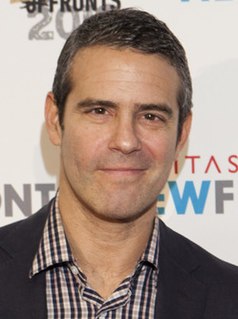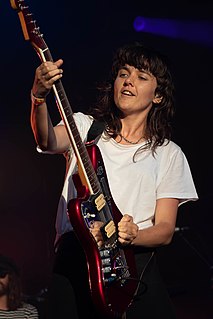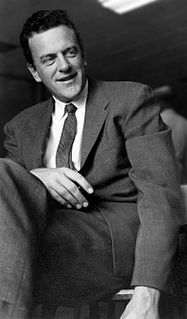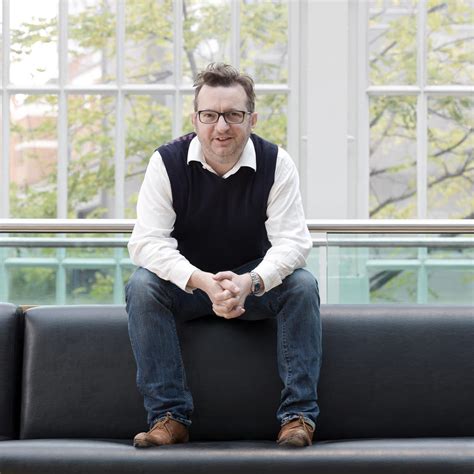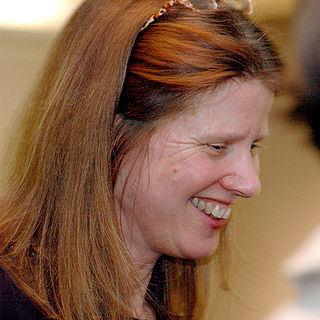A Quote by Andy Cohen
I either wrote at the end of the night or sometimes in the morning. Sometimes they were full entries, or others I just wrote notes about things that happened that day or funny thoughts I'd had. If I had a truly eventful day, I'd take the time to write it all down in great detail. I edited a lot of content out once it was all finished - there was way too much, and I didn't want to bore anyone. I like to keep the book [Superficial: More Adventures from the Andy Cohen Diaries] moving at a fast pace.
Quote Topics
About
Adventures
Andy
Anyone
Book
Bore
Content
Day
Detail
Diaries
Down
Edited
Either
End
Fast
Finished
Full
Funny
Funny Thoughts
Great
Had
Happened
Just
Keep
Like
Lot
More
Morning
Moving
Much
Night
Notes
Once
Others
Out
Pace
Sometimes
Superficial
Take
Things
Thoughts
Time
Too
Too Much
Truly
Want
Way
Were
Write
Wrote
Related Quotes
I was waiting for the right guy to come along, but maybe I didn't actually want one, or was not available emotionally. I was really nervous about including him in the book [Superficial: More Adventures from the Andy Cohen Diaries], but this relationship has developed over a year and a half, and so it would've been dishonest not to.
I had a lot of great lakes of ignorance that I was up against, I would write what I knew in almost like islands that were rising up out of the oceans. Then I would take time off and read, sometimes for months, then I would write more of what I knew, and saw what I could see, as much as the story as I could see. And then at a certain point I had to write out what I thought was the plot because it was so hard to keep it all together in my head. And then I started to write in a more linear way.
It seems like I always wrote, I just didn't think of it as a career choice. I just liked to tell stories ... to myself, to pen pals (I had a lot of them, all over the world). Of course this was in the days before computers were everywhere, and anyone could access the Web. You had to make an effort keeping up a correspondence, and the arrival of the mail once a day was a big deal. I think if modern technology had been around when I was a kid, I would never have left my bedroom except to take the dogs out for their run three times a day.
At the end of the day, when it comes down to it, all we really want is to be close to somebody. So this thing where we all keep our distance and pretend not to care about each other, it's usually a load of bull. So we pick and choose who we want to remain close to, and once we've chosen those people, we tend to stick close by. No matter how much we hurt them. The people that are still with you at the end of the day, those are the ones worth keeping. And sure, sometimes close can be too close. But sometimes, that invasion of personal space, it can be exactly what you need.
I had brief glimpses of emotional catharsis while writing. I remember reading something Philip Roth wrote about how he writes every single day, but it's almost as if he has amnesia every morning - he has almost zero confidence that anything will come but he just sits down and plugs away. And at the end of the day it feels like a miracle: "How did I do that?" I had a similar experience where it was just about putting in the hours and being present.
We had a great childhood and boyhood. It was a wonderful time through those years. A lot of it was through the Depression years, when things were tough, but my dad always had a job. But I had a great time. I was kind of restless, and I had a hard time staying in school all day, so me and a few pals would duck out and go out on these various adventures.
I had read [Charles] Dickens's novels were often published serially. I thought it would be fun to write a book, just sitting down and writing a chapter every day, not knowing what would happen next. So that's how I wrote the first draft. And then of course I had to go back and make sure everything worked and change things.
Keep a diary, but don't just list all the things you did during the day. Pick one incident and write it up as a brief vignette. Give it color, include quotes and dialogue, shape it like a story with a beginning, middle and end—as if it were a short story or an episode in a novel. It's great practice. Do this while figuring out what you want to write a book about. The book may even emerge from within this running diary.
